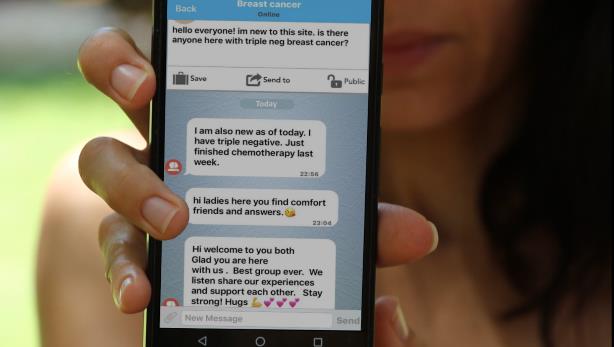Belong.Life, the social network for cancer patients and care givers, has surpassed 100,000 active cancer patient and caregiver users, who depend on the platform to access cancer information, physician communication, clinical trial matching programs, social support and more. Belong users far exceed the number of cancer patients using other patient-oriented platforms, making the international Belong community an important, necessary and vital link to cancer information and networking.
Belongers with breast cancer make up the largest group, with approximately 24,000 users. There are also more than 16,000 in the lung cancer group, around 10,000 blood cancer patients, and a high percentage of active users with rare cancers. Belong offers valuable support connecting these “needle in a haystack” people with others going through similar health challenges, as well as leading oncologists and experts, regardless of geographical proximity.
“As the world’s largest social network for individuals battling cancer, Belong connects patients across the US, Europe, and beyond, providing an accessible and anonymous community for people to understand their diagnoses, navigate treatment, and connect with others going through similar experiences, ranging from home life to work and pain management,” said Eliran Malki, Co-founder and CEO of Belong. “In just two years, by using one of medicine’s forgotten skills – listening – we have learned a tremendous amount about the needs of the cancer community and how to improve patients’ quality of life.”
In addition to allowing its tight-knit patient communities to connect from the privacy and comfort of home, Belong uses big data and machine learning technology to offer users personalised alerts about their interests and challenges.
Healthcare providers turn to Belong for patient support programs, leveraging the app’s engagement tools to educate patients about treatments and protocols, increase adherence, and improve outcomes. The company also conducts research and collaborates with leading universities, cancer advocacy groups and other organisations.





